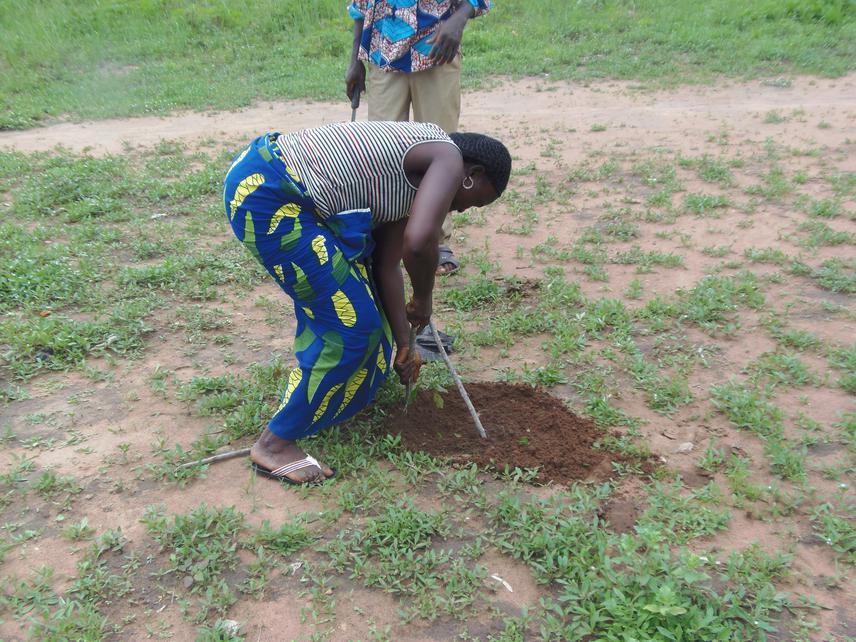Alfred Houngnon
Other projects
16 Apr 2015
Propagation of Native Trees by Local Communities to Provide Food for Primates in the Forests of Ketou: A New Challenge for Habitat Restoration in Benin Republic
23 Jan 2017
Interplay between Men, Fire and Vegetation: Lessons for Developing Community Tourism and Preserving the Last Threatened Ewe-Adakplame Relic Forest in Benin
Ewe-Adapklamey, a forest ‘island’ in Benin, is a unique but endangered, partially-protected forest that harbours a high concentration of endemic plant species such as Bequaertiodendron oblanceolatum (Sapotaceae). Being entirely managed by local populations, our project aims to develop, with local community participation, inexpensive and easily reproducible silvicultural techniques in order to domesticate B. oblanceolatum and other poorly known threatened species in situ.

Ewe-Adapklamey Forest is a refugium for many globally threatened plant species, including several rare, endemic or poorly known species in Benin. Bequaertiodendron oblanceolatum (Sapotaceae) is probably one of the most endangered woody plants species restricted to this unique remnant semi-deciduous forest that is entirely managed by local populations and is partially protected. The species is an important edible fruit for local people, a 1988 study found a small population in the South East of Benin, nearby Ewe village locality (7.4525°N, 2.5655°E). A few individual trees were also recorded within a remnant semi-deciduous forest in the central part of Benin in Tchaourou locality (9.0666°N, 1.9°E) since 1999. However, neither study provided any ecological data and its traditional uses for appraisal of its conservation status in Benin.
This project is designed to:
(1) update the current distribution and its local utilisation at villages of Ewè and Tchaourou in Benin
(2) to develop, with the local communities, appropriate silvicultural techniques for the potential for in situ domestication.
Firstly, we will use social surveys and forest inventories to investigate areas in order to collect data on its ecology and its uses. Secondly, we will collect seeds from sampled trees and will test their capacity to be vegetatively propagated with an inexpensive and easily reproducible vegetative propagation (VP) technique in the field and in nurseries. VP technics such as the air layering method, root cutting method and root sucker induction method will be tested. Fifty replicates of each method will be assessed in a randomly designed field experiment. Farmer Field Schools will be used as working group strategy and education programme, for sharing and transferring knowledge in the communities.
This will help to raise awareness and enthusiasm among local people in order to better strengthen their abilities to manage their own natural resources. By focusing on this plant species as a conservation priority, the project will facilitate collaboration between local communities, NGO’s, educational institutions and government agencies to work towards plant species conservation. As a result, legislation protecting neglected and rare plant species and their management will be strengthened.